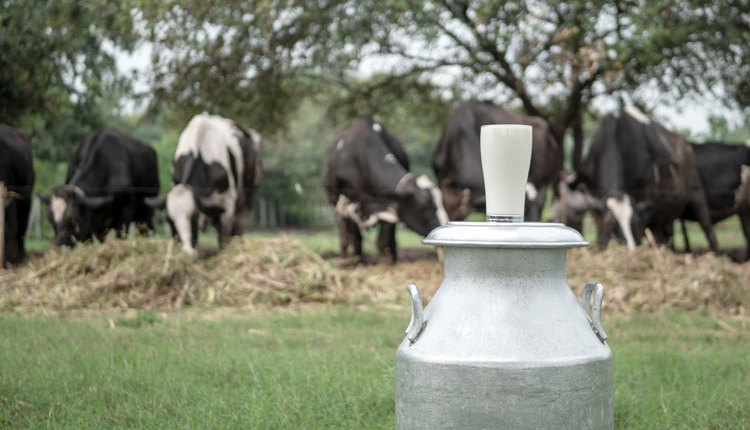
Raw milk could be on its way to becoming a little more accessible to the general public.
The Interstate Milk Freedom Act would reverse a long-standing FDA ban on the sale of raw milk between states. “Raw milk is currently the only food banned for interstate commerce — an onerous regulation that hurts small farmers for selling milk straight from their cows to the consumer,” said Representative Chellie Pingree (D-ME), who introduced the bill on December 13.
To be clear, this bill has a long road to passage. However, there are staunch supporters both for and against this concept.
It’s currently legal to sell raw milk in only 28 states, and this bill does not propose a nationwide sale. That power remains with individual states. The bill would instead provide that if two states that each already allow the sale of unpasteurized milk want to sell product with each other, no federal department may interfere with those negotiations.
The consumer’s right
In a time when consumer choice at the grocery store has skyrocketed in every aisle, including dairy, cosponsors and supporters of this bill are promoting access to raw milk as a way to allow more Americans the right to decide what milk is right for their family.
The continued rise of farmers markets is a testament to the movement toward consuming fresh, local, minimally handled foods. Vegetables, fruits, greens, and even meats are often at the center of these discussions. Because of the lack of processing, raw milk is now often seen as the most convenient dairy product to check these boxes.
Consumers may be interested in the unprocessed raw milk for a number of reasons. Some believe it to be healthier, some see it as more natural, and others find it the easiest way to get their milk from local farmers in their community. As with any other industry, the perceived “niche” value of the product also makes it more desirable.
The farmer’s right
Proponents of the bill also strongly believe that current government regulations against the interstate sale of unpasteurized milk hurts farmers, especially smaller dairy producers who could or already do benefit from direct-to-consumer sales. Limiting farmers’ access to the raw milk market takes away customers that are often prepared to pay a premium.
“This bill rightly gets the federal government out of the way and decriminalizes farmers and producers who choose to sell or take unpasteurized milk and other dairy products to willing customers throughout the nation,” said Representative Lloyd Smucker (R-PA).
Reliability or choice?
Of course, we know why raw milk sales are so controversial. Selling milk that has been pasteurized is safer and more reliable for the producer, processor, and consumer than marketing raw milk. Drinking raw milk does pose a bacterial threat, however small. Pasteurization, though, quite easily eliminates this threat.
Raw milk advocates say that customers willing to purchase the product understand the risks associated with unpasteurized milk. Opponents argue that consumers unaware of the difference could easily pick up raw milk and then put themselves at risk.
The choice between raw and pasteurized milk is one that a majority of dairy consumers have not had to make. Opening up larger markets for raw milk that has not been pasteurized certainly presents a potential challenge that lawmakers and the industry must weigh.








